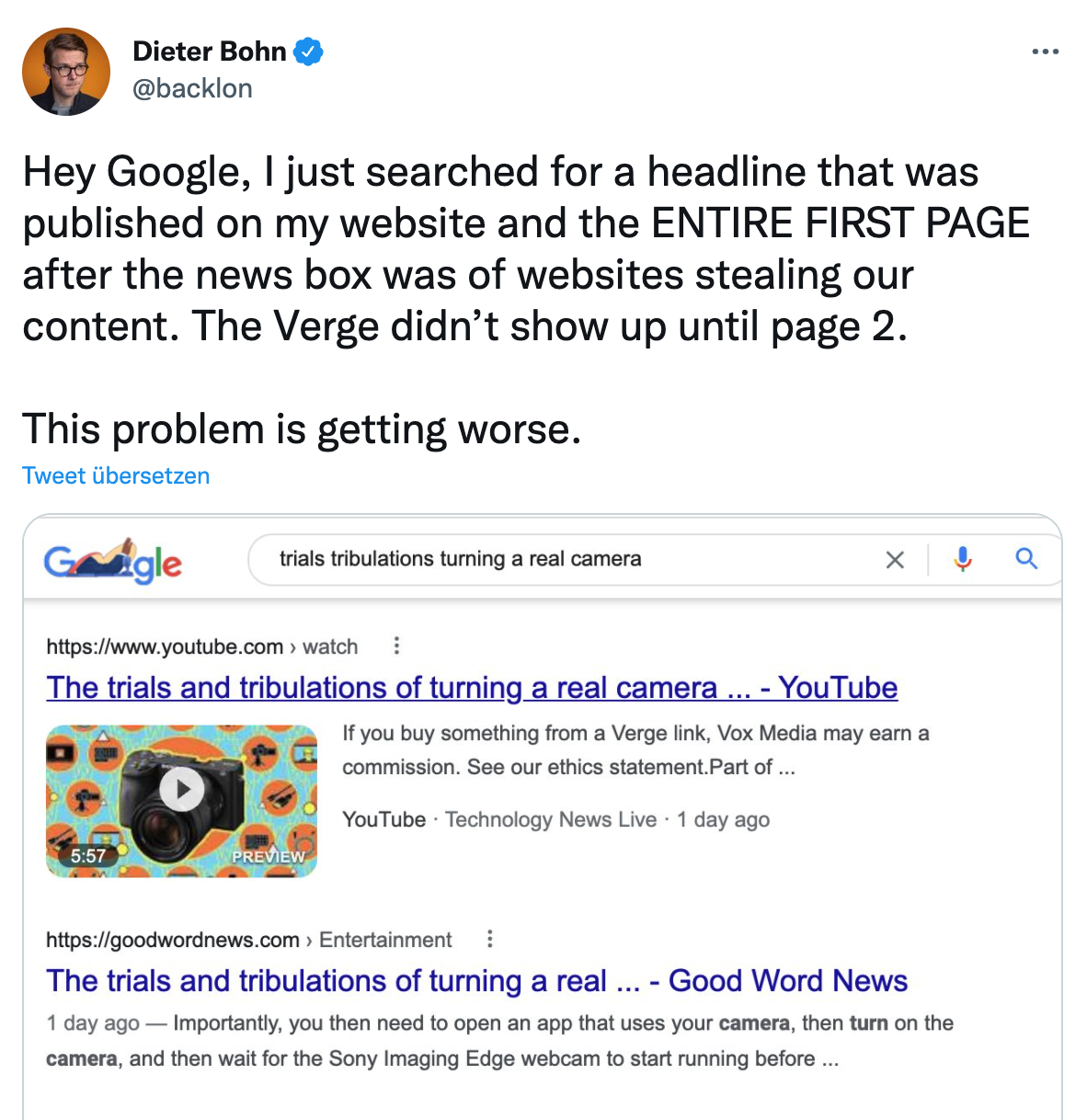The search results are becoming more and more complex in their structure – normal organic results, numerous vertical results boxes, structured, semantic data and more are brought together on one search result page.
With this, it is inevitable that the same content will be found in several locations. To ensure that this content does not appear multiple times in the SERPs, it is de-duplicated by Google – i.e. summarised and only displayed once.
A case by the journalist Dieter Bohn shows how complex the rules behind such de-duplication are. He had searched for the title of his article on Google and publicly accused Google of only showing copies of his article.

Danny Sullivan, representing Google, accepted the allegation and cleared it up. The result is interesting: when searching for many words at the same time (as here for the title of the article), Google switches to a different search mode.
Google then no longer tries to “understand” the query (see ML/BERT) to display matching hits, but only searches for pages that contain all the searched words. Google will then function as a full-text search engine, just as it used to.
If the same URL is found in several sources, Google only shows it in one location. In this case, the article was already the first link in the “Top Stories” box, and this box also appeared before the organic search results.


